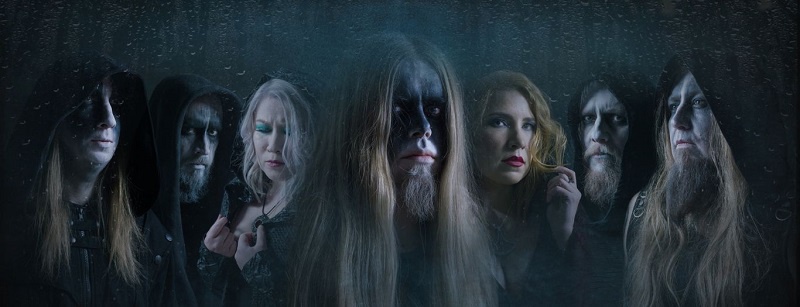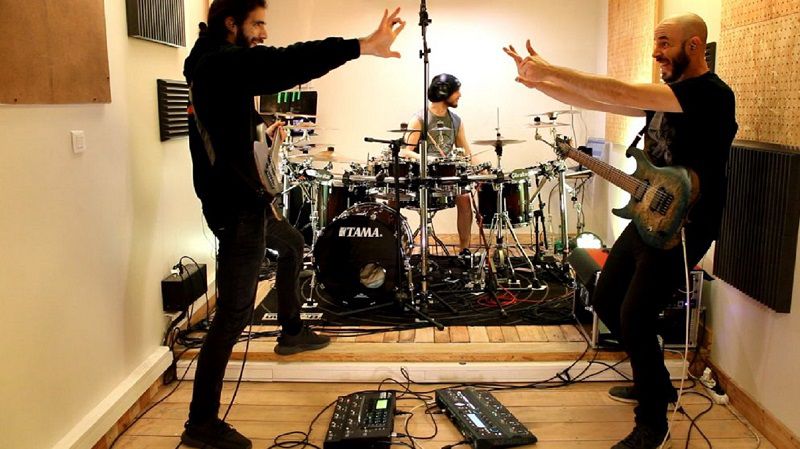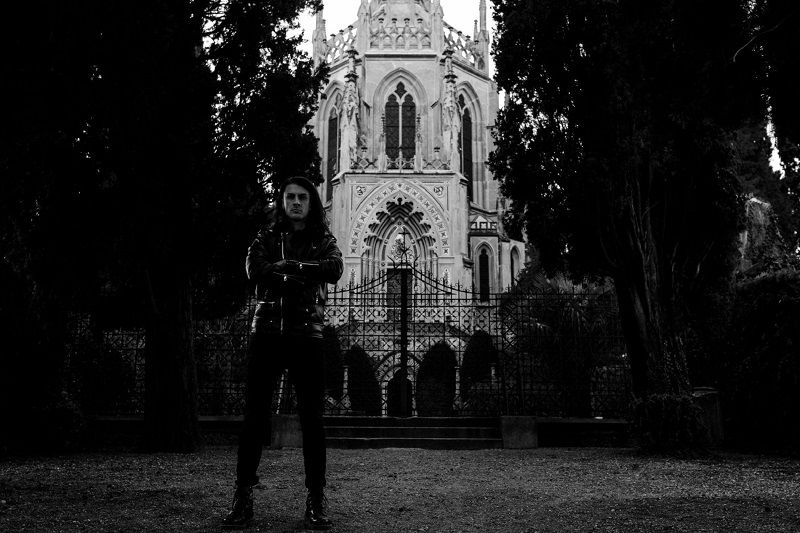#PanderMonkey 🇺🇸 #Interview
9 min read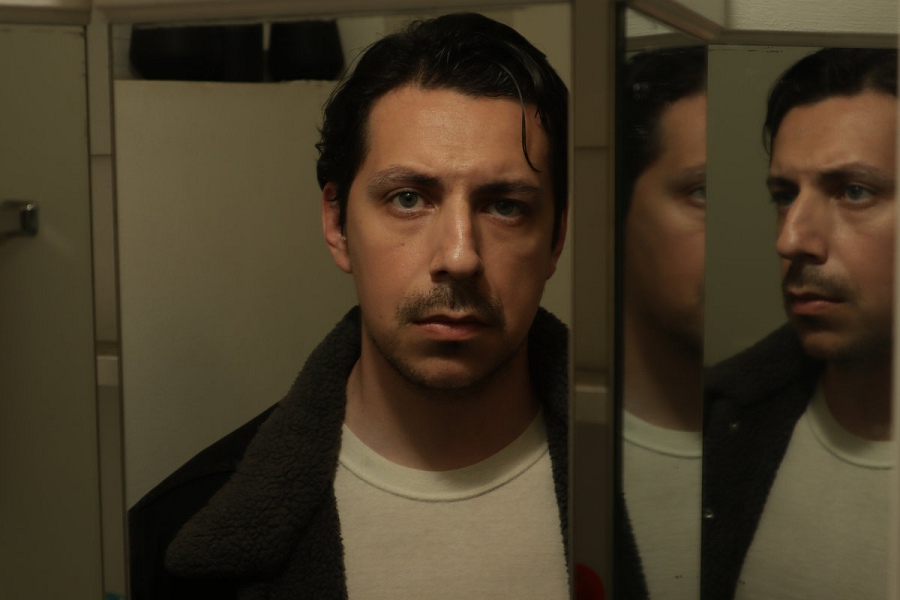
Pander Monkey is the solo project of songwriter/ multi-instrumentalist Michael Mansour. Last month saw the release of the project’s debut EP, which brings together various styles all on a shimmering post-rock foundation. I caught up with Mansour to find out more about the project, his background and the music he loves (and hates!).
Thanks for agreeing to this interview with Blessed Altar Zine. I’ve been listening to your Pander Monkey EP and I’m really enjoying it. What was the journey like from first having the idea of making the EP to finally releasing it?
Mansour: Thank you very much, I appreciate that. The idea of making it happened gradually, right before the pandemic. My original plan wasn’t even to make an EP—It was to record backing tracks for songs so I could perform them live with a bigger sound. Drums, bass, and a few layers. But I quickly became absorbed in the process. Before I knew it, I was spending 12 hours a day working on the songs, trying to recreate what I felt was in my head. At that point, it had to be its own record.
The actual releasing process was a nightmare. The music has been completed since summer 2021, but the release faced countless delays because of the artwork. It was both the most time-consuming and expensive part of the entire EP.
There’s an interesting range of emotion that comes through in these songs. There’s darkness, but also glimmers of something maybe redemptive, while there’s similar ambiguity in the lyrics. How would you characterise the mood or feeling of these songs?
Mansour: Barely hanging on. That’s how all of them feel to me. Specifically “Precarious.” I personally don’t know how to verbalize the feeling of barely holding yourself and your world together, but I always felt that song conveyed the message on its own, which is why it’s instrumental. The other songs share the same theme. Reclusivity, hatred, and longing. We all know what it’s like to barely keep ourselves together amidst chaos. This is a bit of that in musical form for me.
How hard was it, as a solo performer, to put all the different instrumental elements together to make the tracks gel?
Mansour: It not only wasn’t hard, but it brought me genuine peace doing it. I’ve always wanted my music to be bigger than the means I had access to. Even in previous bands I was limited to what few musicians and instruments were in the band with me. Working on my own has allowed me to experiment with layers without limitation. Even now, the process of putting these elements together is what brought me the most happiness. It’s almost irrelevant if anyone else likes it or not. Although I’d much prefer they did.
What instruments did you play in total? There seem to be occasional violins. Is this you, or a nifty computer, or do you have a violin player locked in your basement who isn’t credited on the album?
Mansour: In total I played 5 instruments—guitars, bass, drums, piano, and violin, plus a shit ton of percussion. Some light synths, too. The drums were mostly programmed, but there’s a lot of live drums mixed in with them. There’s even a cajón on one track for some reason.
The guy I keep locked in my basement actually runs my social media, so I had to play violin myself. I’m not very good, but there’s nothing shittier and cheaper-sounding than a midi violin. I wanted a real one on there, but didn’t have the means or cash to hire someone. So I figured it out. Best case scenario is you can’t tell if it’s real or fake, which means I hid my mistakes well.
Can you tell us a bit about your childhood and the influence music had on you growing up?
Mansour: I started playing guitar at 4 years old, although I don’t remember that very much. There were always guitars lying around the house, so nature did its thing. But I had two older brothers who were discovering Nirvana and Metallica just as I was entering kindergarten. So, needless to say, I got fast-tracked musically. I was already a quiet, weird kid in school, but my obsession with weird music exacerbated that. When I was in 6th grade, I bonded with my teacher over Captain Beefheart and 60s music. Those were my friends as a kid: Boomers.
I stuck with guitar for most of my childhood (bass came naturally), then dabbled with drums when I was 11 or 12. I’ve been in bands since I was 13 and writing music since I was 10. I don’t know why it took almost 20 years to release a record I finally have a personal connection to. I’m a late bloomer, I suppose.
Why did you decide to go by the name “Pander Monkey”?
Mansour: Years ago, I saw an old video of Marc Maron trashing Jon Stewart onstage for seemingly no reason (Maron has a history of being a bit disagreeable to say the least), and one of the things he called him was a pander monkey. I don’t know if I agreed with his rant, but I loved the term and never forgot it. These days, everyone is pandering to someone or something. It’s nauseating. No matter what you believe, you’re going to find someone telling you exactly what you want to hear. So here I am, the Pander Monkey, making music you didn’t ask for and probably don’t want to hear.
You recorded an album as Broadbill back in 2018. What do you think you learned from that recording experience that helped you to make the new EP?
Mansour: It was a perfect case of “let’s not do that again.” I love the guy I recorded that album with (Kevin Macshane, who also recorded most of the vocal tracks on the Pander Monkey EP), but the process was flawed for a number of reasons. Mainly because it was rushed and because I had no part in the mixing process.
This time I took my sweet ass time, mixed everything, and re-recorded anything that didn’t feel or sound right. It’s still very much a budget record, which plenty of people won’t be cool with. But I’m content with how it came out, and that’s much more important to me.
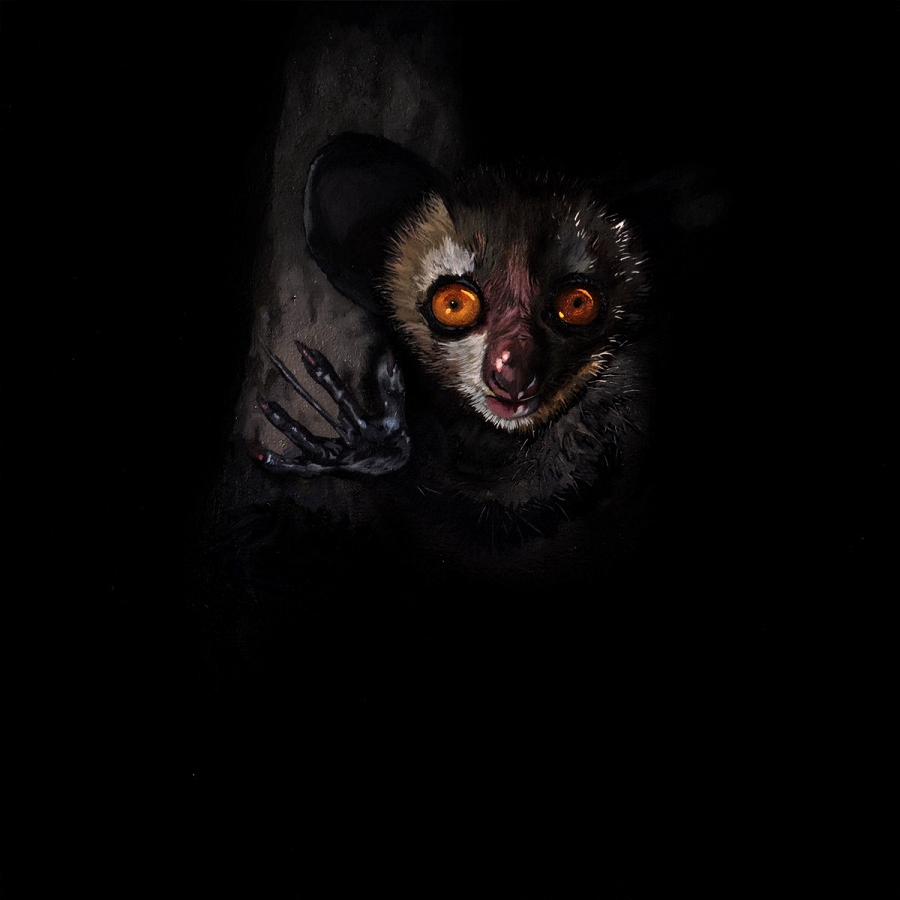
From both a writing and a performance point of view, how do you think you’ve evolved since making the Broadbill album?
Mansour: In many ways. But it was a painful growth. At least for performance. Like any person with lifelong depression knows, self-loathing is a real hurdle when it comes to performance and putting yourself out there. So, I threw myself into the deep end with just a guitar and a microphone at open mics all over LA to confront my singing phobia. Such horrific artistic environments. You got brand new comics bombing, cringe singer-songwriters playing slight variations of the same goddamn songs, literal crazed homeless people wearing tin foil (not a joke). And then here I am with dramatic, 6 minute post-rock songs. You have no one to hide behind, and no one cares how you feel. It toughens you up, whether you like it or not. I set out to be the best every night. If someone was better than me, I knew it. And when that happened, instead of going home, I would park somewhere, sit in my backseat with my guitar, and practice for hours.
The writing has evolved in a much more organic way. In the Broadbill days, it was more of an arrangement process than a writing one. Most of the songs ended up having many smaller riffs and sections with a lot of notes—not in a mathcore way, but definitely on the proggier side. These days, I feel like the song should write itself. If something isn’t coming together naturally on its own, it just isn’t time yet. I learned a lot of tricks to make one riff feel new even if it’s the only one in the song. Expanding on one simple idea can oftentimes feel much bigger than structuring a series of cool sections together. You can change the entire feel of a song through its layers without ever changing the foundation. Every song has its own personality, you just have to water it and see what it turns into.
How difficult was it to go from dedicating time and energy to one band and then starting over with a whole new musical concept?
Mansour: Not difficult at all. It was one of the most liberating things I’ve ever done. I was unhappy in my last band. I was unhappy in all my bands. I don’t like being dependent on others and I don’t like them being dependent on me. I don’t deny the value of collaboration in music, but I personally need to make music without artistic compromise. That is simply impossible with a band. Unless they’re all hired guns. And let’s just say if I’m recording an EP in my bedroom like I did here, the hired-gun-budget is a bit on the low end. As soon as I made the decision, inspiration flooded back into me.
You meet someone at a party and when they find out you’re a songwriter they ask you the dreaded question: “what kind of music do you make?” How do you respond?
Mansour: I’d throw my drink in their face and sprint home. But if I was surrounded at gunpoint, I would keep it simple and say post-rock. If they didn’t know what that meant, I would stammer for a while, vaguely saying, “Like big, moody rock with a million instruments and it’s heavy and pretty or whatever.” Would prefer to go with the sprinting option though.
Imagine that you could join any band past or present – you being the age you are now, with exactly the same abilities – which band would you choose? And you’ll be a replacement too, so who’s getting kicked out on the street?
Mansour: I would join Led Zeppelin by replacing John Bonham, effectively ruining their career, bringing forth justice for all the artists whose music they stole.
If you want a more serious answer, even though I love Steve McDonald, I would replace him to join the Melvins. I love Buzz and Dale as artists and as people. Total no-brainer.
If you were guaranteed $100 for every successive day that the only music you listened to was Steely Dan and nothing else, how much money do you think you’d make?
Mansour: None. I’d end up owing thousands of dollars in legal fees and time in prison for assaulting the person who made me such an egregious offer.
Finally, is there anything else you’d like to mention or promote?
Mansour: Aside from Pander Monkey, I also host a podcast with my buddy called Every Album Ever with Mike & Alex. Every episode we go through the full discography of a different artist, album-by-album. It’s an excuse to talk shit and geek out over bands like Slint and the Butthole Surfers. We’ve done a ton of episodes covering everything under the sun and we’ve harbored a nice little group of music nerds there. Check that out at YouTube.com/everyalbumever. As well as everywhere else you get pods.
Thanks so much for having me.
Interview by Tom Osman
Thanks to Michael Mansour for his time. You can listen to the Pander Monkey EP on all the usual streaming sites, or why not help to put some food in the mouth of a hungry young recording artist and buy a copy on bandcamp?
**Please support the underground! It’s vital to the future of our genre.**
#WeAreBlessedAltarZine
#TheZineSupportingTheUnderground

